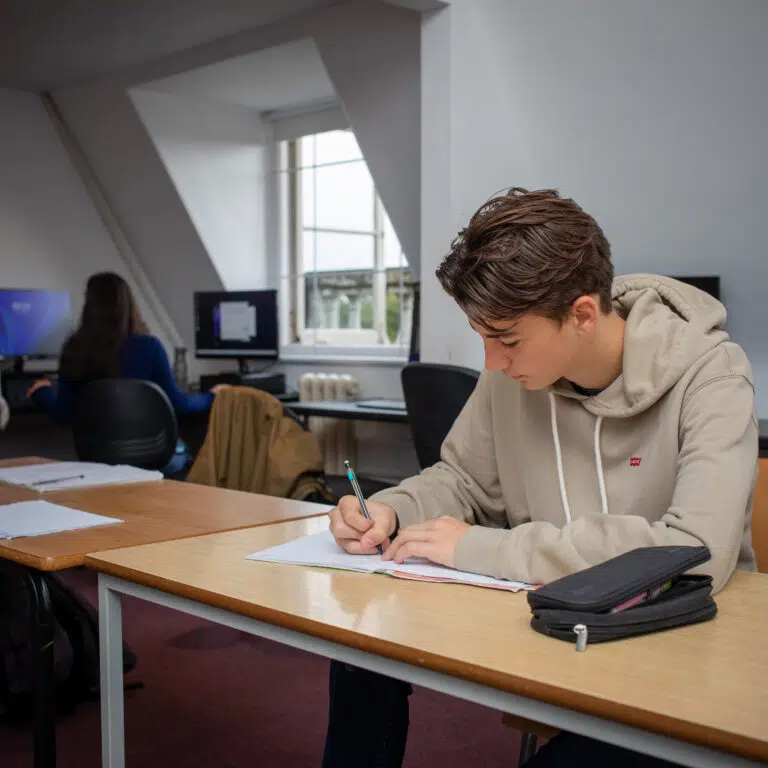The Sixth Form years at Hampton Court House are both challenging and exciting. Pupils have the opportunity to specialise in subjects at which they particularly excel, and study these areas to an advanced academic level. The privileges of senior status in the School bring with them responsibilities too: service, leadership and co-curricular enrichment are integral to Sixth Form life.
The Sixth Form curriculum provides pupils with the skills they will need in order to successfully navigate our complex, interconnected and ever-changing world. We want our pupils to be inquisitive, compassionate and connected; to be independent, reflective learners who work as hard for others as they do for themselves. Class sizes are small, and our curricular options are broad. Sixth Formers at Hampton Court House also keep an eye on 21st century contexts through participation in the Extended Project Qualification (EPQ).
Furthermore, key information on a range of options such as degree apprenticeships is woven through the curriculum. Our higher education and careers advisor offers comprehensive guidance and tailored advice to each pupil, exposing them to the full range of post-16 opportunities in the education, training and employment spheres, while equipping them with the requisite employability skills so they graduate from Hampton Court House future-ready.
Sixth Form pupils also have an opportunity to contribute to the management and leadership of the school by taking on key student positions of responsibility such as Head Pupil, HCH Council, Wellbeing Ambassador, to name a few.



